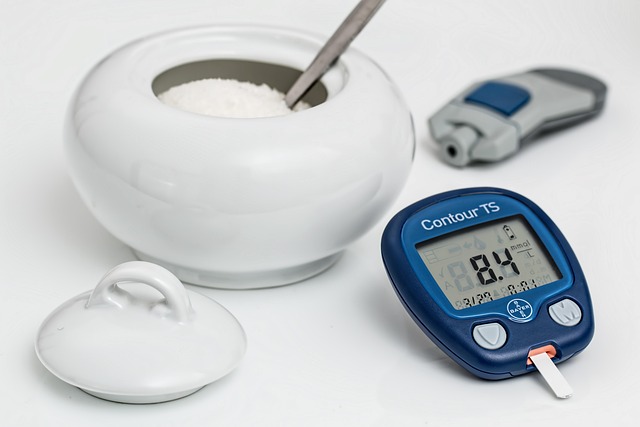The UK Standard Liver Blood Test is a crucial, non-invasive procedure recommended by the NHS for adults aged 40+ to monitor cholesterol levels and heart health. By checking total, HDL ('good'), LDL ('bad'), and triglyceride counts, it aids in early detection of high cholesterol without symptoms. Accurate results depend on proper preparation: fast for 8-12 hours, remove metal jewellery, wear comfortable clothing, arrive early, and inform your healthcare provider about medications. Understanding test results empowers informed decisions about lifestyle adjustments or medication to safeguard liver and cardiovascular health through regular testing.
“Discover how simple blood tests can be your key to managing cholesterol levels, a vital aspect of heart health. This comprehensive guide navigates you through the UK standard liver blood test, offering insights into understanding cholesterol and its impact. Learn about preparation techniques for accurate results and interpret your test outcomes like a pro. By demystifying the UK Standard Liver Blood Test, we empower folks to take charge of their cardiovascular well-being.”
- Understanding Cholesterol and Liver Blood Tests in the UK
- How to Prepare for a Simple Blood Cholesterol Test
- Interpreting Results: Unlocking Insights from Your Liver Blood Test
Understanding Cholesterol and Liver Blood Tests in the UK
Cholesterol is a waxy substance found in all cells of our bodies, playing a vital role in maintaining good health. However, high levels of cholesterol, particularly ‘bad’ LDL cholesterol, can increase the risk of heart disease and stroke. This is where regular liver blood tests come into play. In the UK, the standard liver blood test, often referred to as a full lipid profile or UK Standard Liver Blood Test, measures various types of cholesterol and triglycerides in your blood. This simple procedure involves taking a small sample of blood, usually from a vein in your arm, and analysing it for total cholesterol, HDL (good) cholesterol, LDL (bad) cholesterol, and triglyceride levels.
The UK National Health Service recommends that adults aged 40 or over undergo regular liver blood tests as part of their routine health check-ups. This is because high cholesterol often has no symptoms, and many people are unaware of their elevated cholesterol levels until it’s detected through a blood test. By understanding your cholesterol profile, you can make informed decisions about lifestyle changes and, if necessary, discuss medication options with your healthcare provider to manage your cholesterol and maintain optimal cardiovascular health.
How to Prepare for a Simple Blood Cholesterol Test
Before your blood cholesterol test, it’s important to prepare properly to ensure accurate results. One key step is to fast for at least 8–12 hours before the test. This means avoiding food and drink (except water) during this time. The UK Standard Liver Blood Test, also known as a lipid profile or cholesterol test, requires fasting to provide a clear picture of your cholesterol levels.
On the day of the test, make sure you take off any jewellery that might interfere with the procedure, such as wristbands or necklaces with metal components. Wear comfortable clothing and arrive at the clinic or hospital well in advance to reduce stress. Inform the healthcare professional conducting the test if you’re taking any medications, as certain drugs can affect cholesterol readings. Following these simple preparations will help guarantee the reliability of your UK Standard Liver Blood Test results.
Interpreting Results: Unlocking Insights from Your Liver Blood Test
When you get your UK Standard Liver Blood Test results, it’s important to understand what each number means. Your test will check for levels of total cholesterol, LDL (low-density lipoprotein) or ‘bad’ cholesterol, HDL (high-density lipoprotein) or ‘good’ cholesterol, and triglycerides. The ideal range for total cholesterol is below 5mmol/L, with LDL below 3mmol/L and HDL above 1mmol/L. High levels of LDL can increase your risk of heart disease, while high HDL levels are protective.
Interpreting these results allows you to unlock valuable insights into the health of your liver and cardiovascular system. For example, if your LDL cholesterol is high, your doctor may recommend lifestyle changes such as a healthier diet or increased exercise, or they might suggest medication to help lower it. Regular monitoring through UK Standard Liver Blood Tests can help you take control of your health and make informed decisions about your well-being.
Understanding your cholesterol levels is a key step in maintaining good heart health, and a simple UK standard liver blood test can provide valuable insights. By knowing how to prepare and interpreting the results, you can take control of your well-being. Regular monitoring, guided by this straightforward process, empowers you to make informed decisions about your diet and lifestyle, thereby reducing risks associated with high cholesterol.
